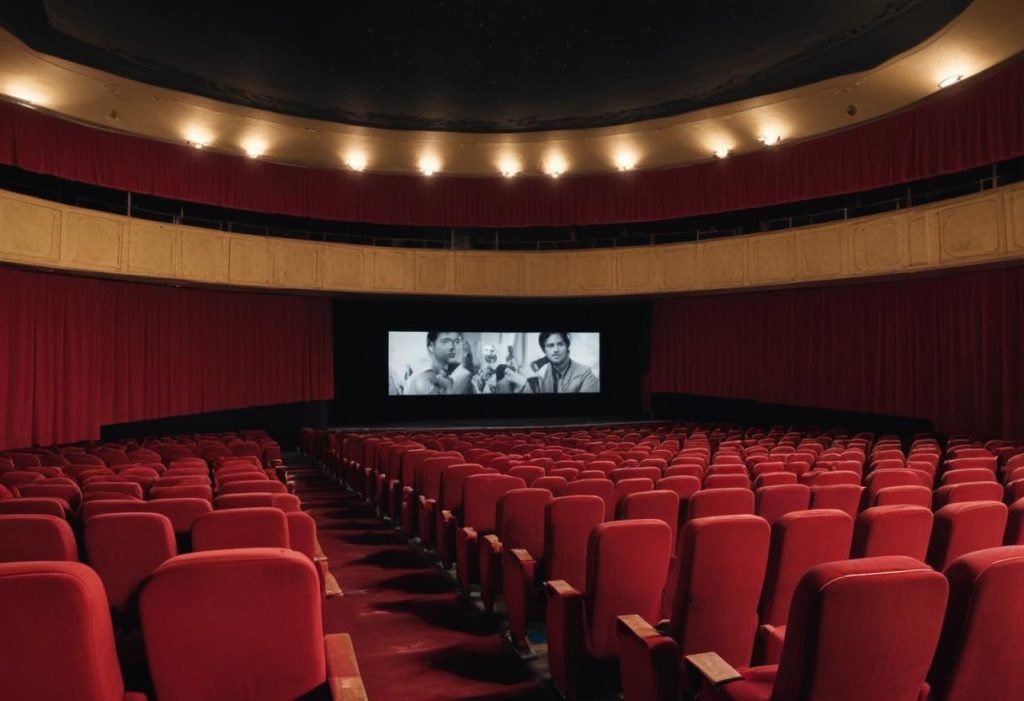
The whirring of a projector, the collective gasp in a darkened theater, the shared experience of being swept away by a story unfolding on a massive screen – for generations, this was the quintessential movie-watching ritual. But the digital revolution, and particularly the ease with which movies can now be downloaded, has fundamentally altered this landscape. From the comfort of our homes, with a few clicks, an entire library of films becomes accessible. This convenience, however, has sparked a digital dilemma, raising crucial questions about the future of cinema and how we, as an audience, connect with this powerful art form. Has easy movie downloading irrevocably changed how we experience cinema, and is that change for better or for worse?
The most immediate impact of easy movie downloading is the shift in where and how we consume films. The once dominant theatrical experience now competes fiercely with the allure of watching movies on personal devices, at our own pace, and on our own terms. The rise of high-speed internet and the proliferation of streaming platforms, often fueled by the desire for readily available content, have made downloading – both legal and illegal – a ubiquitous aspect of modern entertainment consumption, even here in Lagos, where internet access continues to evolve. The days of meticulously planning a trip to the cinema, coordinating schedules, and paying for tickets feel increasingly like a nostalgic memory for a significant portion of the audience.
This shift in consumption has undeniably brought about certain conveniences. The ability to pause, rewind, and rewatch scenes, the comfort of our own surroundings, and the avoidance of potentially disruptive fellow moviegoers are all valid perks of watching at home. For families, the cost-effectiveness of a monthly streaming subscription compared to multiple cinema tickets can be a significant factor. Moreover, geographical limitations are virtually erased; independent films or international cinema that might not screen widely in Lagos are often readily available online, broadening access to a more diverse range of storytelling.
However, this convenience comes at a cost, particularly to the communal aspect of cinema. The shared experience of laughter, suspense, or tears in a darkened theater creates a unique bond between strangers. Discussing a film immediately after leaving the cinema, fueled by the collective emotional impact, is a social ritual that is largely lost when we watch in isolation. The energy of a packed audience reacting to a pivotal scene is an integral part of the cinematic magic, a visceral experience that a downloaded file on a laptop screen simply cannot replicate.
Furthermore, the sheer volume of readily available content can lead to a sense of disposability. When movies are easily downloaded and forgotten, do we truly engage with them on the same level as when they were a more deliberate and perhaps costly endeavor? The act of choosing a film from a vast digital library can sometimes feel overwhelming, leading to a cycle of endless Browse rather than deep immersion in a chosen story. The scarcity of access in the past, perhaps waiting months for a film to arrive on VHS or for a local cinema to screen it, often heightened our anticipation and appreciation.
The impact on the film industry itself is another critical element of this digital dilemma. While legal streaming services offer a revenue stream for creators, the prevalence of illegal downloading continues to pose a significant threat, potentially impacting the funding and production of future films. In a place like Nigeria, where piracy can be rampant due to economic factors and accessibility, the challenges for local filmmakers and distributors are particularly acute, with platforms like Netnaija being a known destination for various types of content. The financial viability of creating original content relies, to a significant extent, on audiences valuing and paying for the experience, whether through cinema tickets or legitimate streaming subscriptions.
Moreover, the way films are created might also be subtly influenced by the digital download culture. With viewers potentially watching on smaller screens and often multitasking, filmmakers might feel pressure to create content that is instantly engaging and easily digestible, perhaps at the expense of slower-burn narratives or visually intricate details that are best appreciated on a large cinematic canvas. The focus might shift towards easily shareable clips and soundbites, potentially impacting the artistic integrity and depth of storytelling.
The rise of streaming platforms has also blurred the lines between cinema and television. The binge-watching model encourages a different kind of engagement with narrative, often prioritizing serialized storytelling over the concentrated impact of a feature film. While long-form storytelling has its own merits, it represents a departure from the traditional cinematic experience of a self-contained narrative arc within a limited timeframe.
In conclusion, easy movie downloading has undeniably revolutionized how we access and consume films, offering unprecedented convenience and choice. However, this digital shift has come at the cost of the communal theatrical experience, potentially diminishing our engagement with individual films and posing significant challenges to the financial sustainability of the film industry. While the genie of digital distribution is unlikely to be put back in the bottle, it’s crucial to acknowledge the profound ways in which this ease of access has reshaped our relationship with cinema. The future of movie-watching likely lies in a hybrid model, where the immersive experience of the cinema continues to hold a special place, complemented by the convenience and accessibility of digital platforms. The challenge lies in fostering a culture that values cinematic artistry and supports its creation in this evolving digital landscape, ensuring that the magic of the movies endures for generations to come, both on the big screen and beyond.
Comments on “The Digital Dilemma: Has Easy Movie Downloading Changed How We Experience Cinema Forever?”